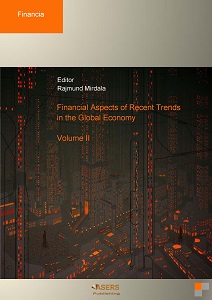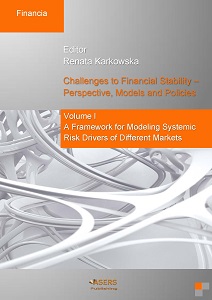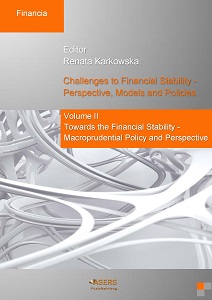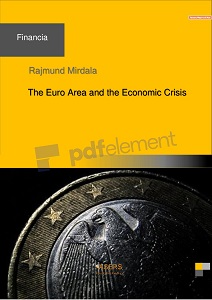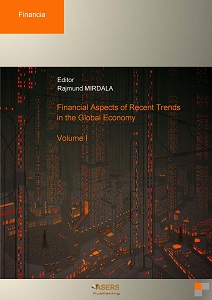
Financial Aspects of Recent Trends in the Global Economy - Volume I
Financial Aspects of Recent Trends in the Global Economy - Volume I
Keywords: globalisation; financial market; financial crisis; global imbalances; debt constrains; exchange rates arrangements
Current global financial and economic crisis represents one of the key areas of policy makers as well as academics discussions. Together with debt crisis they may be considered as one of the most crucial challenges that official authorities are facing over the past few decades. Crisis period focused attention of economists to various areas of the financial aspects of recent trends in the world economy in the new global era. Financial liberalization together with the process of growing financial integration among countries in global content significantly contributed to rapid increase in the financial dependence of national financial markets. Intensification and internationalization of financial transactions, financial innovations and rising strength of financial institutions accelerated growing potential of the financial sector. It is not surprising that nowadays daily turnover in financial transactions significantly exceeds daily turnover in trade all over the world. As a result overall impact of financial sector activities on the real economy markedly increased over last few decades. Finally, a rising demand for more effective regulation of national financial sectors and international financial transactions seems to be a convenient way that policymakers suggest as the appropriate solution for current global financial challenges. Within this context we also point to an increasing relevancy of voices calling for new arrangement of international monetary system.Increased uncertainty considerably reduced allocation effectiveness of the financial markets during the crisis period. While the interest rates during the recession period generally decreased, costs of lending increased mostly for highly indebted countries. Economic crisis emphasized another crucial aspect of the current development in the world economy generally known as debt financing of economic growth and related negative trend in public debt development. Particular problems in the most indebted Eurozone countries affected not only stability of the euro exchange rate but also became the main reason for accelerating the process of fiscal unification, banking union formation and key adjustments in Eurozone stabilization mechanisms. As a result the pressures to strengthen financial discipline of the Eurozone member countries increased while the alternative scenarios of Eurozone reconstruction remained still alive (i.e. national bankruptcy, fiscal union). Another problem partially related to the current debt crisis represents a significant growth of the corporate debt, also known as corporate funding crisis. Accumulation of corporate debt during last few decades together with slow post crisis recovery in the main world economy centers raises the risk of upcoming corporate insolvency wave as a result of the huge wall of maturing debt signalizing refinancing difficulties in credit markets in United States, Europe and Asia.The last problem we emphasize as a direct consequence of negative aspects of the current crisis period is related to the rising indebtedness of households. In many countries an individual insolvency still deserves not sufficient attention of official authorities. Personal bankruptcy as a complex consolidation procedure is also not adequately implemented in the national legislation especially in the less developed countries considering wide aspects of this process.
More...
